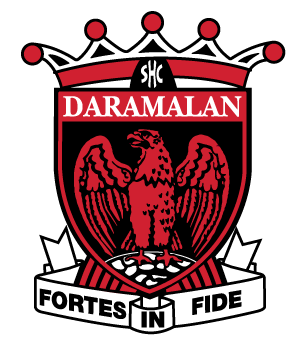Sociology T/A
Sociology is the study of the organisation and functioning of human society. It teaches the student to think critically about the world they live in. The course takes a thematic approach after first giving an introduction to the major theories and concepts.
The course may be taken as a Minor or a Major. Units are offered from the following selection.
- Sociology of Power
- Sociology of Ethnicity and Race
- Independent Study T (pre requisite is Sociology of Power)
- Sociology of Education Work and Leisure
- Sociology of Health and Medicine
- Sociology of Media,Youth and Culture
- Sociology, Deviance and Crime
- Sociology of Roles and Relationships
INTRODUCTORY SOCIOLOGY
In this unit key terms and concepts of sociology are introduced. Historical and theoretical perspectives are examined and research methods outlined. There is an examination of the way we learn, how we fit into society – role, status, norm, culture, agents of socialisation – family, peer, media etc, process of socialisation – primary and secondary, sex roles. Social stratification is examined, focusing on class, status and caste systems. The issues of power and wealth are also explored, with a particular focus on the distribution of wealth, power and politics, etc. Poverty is also covered, with an emphasis on Australian society. This information is related to social issues such as health and illness in developed countries, global and environmental problems, etc.
SOCIOLOGY OF ETHNICITY AND RACE
This unit covers concepts such as ethnicity, race, racialism, cultural and institutional racism. There is an examination of the historical background of entrenched attitudes and stereotyping and scapegoating. The cycle of prejudice and discrimination is covered. There is a focus on specific case studies for example, apartheid, genocide, ethnic cleansing, etc. There is also a focus on Australian minorities.
INDEPENDENT STUDY
The independent study component (.5 unit) will be negotiated with the teacher responsible. The subject matter may be an extension of content previously studied by the student or may be entirely new to the student. Emphasis will be on areas of special interest and value to the student.
SOCIOLOGY OF WORK LEISURE AND EDUCATION
The first part of this unit investigates the meaning of work and leisure and its role in society. The changing nature of work in Australia is examined. Perspectives on work and leisure are also explored. The Sociology of Education will investigate the function and role of educational institutions in society. The determinants of educational opportunity and the correlation between wealth, gender and ethnicity will be covered. Course studies such as private versus public education, gender and education versus Aboriginal education will also be highlighted in this unit.
SOCIOLOGY OF HEALTH AND MEDICINE
An Australian perspective on Health and the role of Medicine is unit’s focus. Health and illness issues across cultures and socio- economic groups is examined. A case study approach is taken for many unit topics.
SOCIOLOGY OF YOUTH, MEDIA AND CULTURE
Issues relating to youth are the focus of this new unit. The status and treatment of youth in Australian society is examined. Issues such as youth subcultures, juvenile delinquency, sexuality and other issues that impact on youth are studied. The second part of this unit investigates the role of media in society, in politics, sport education and religion.
SOCIAL DEVIANCE
In this unit there is an exploration of deviance as a socially defined phenomenon including behavioural norms, codes, sanctions, conformity, compliance. The theoretical perspectives include the labelling theory, functionalist and Marxist perspectives, ecological perspectives and the notion of power and deviance. Patterns and treatments of deviance are also covered. The last part of the unit covers case studies such as sexual deviance, drugs, mental disorders, suicide, football hooliganism and juvenile delinquency.
SOCIOLOGY OF ROLES & RELATIONSHIPS
This unit focuses on the institution of the family and its dynamic nature and role in all societies. It explores marriage, family and domestic relationships. The other module in this unit explores the origins of gender and sex differences and the relationship between sex, gender and power in society. Other units that may be offered include Sociology of Religion
